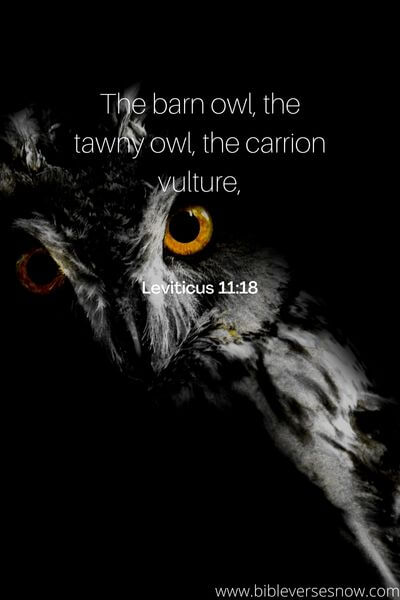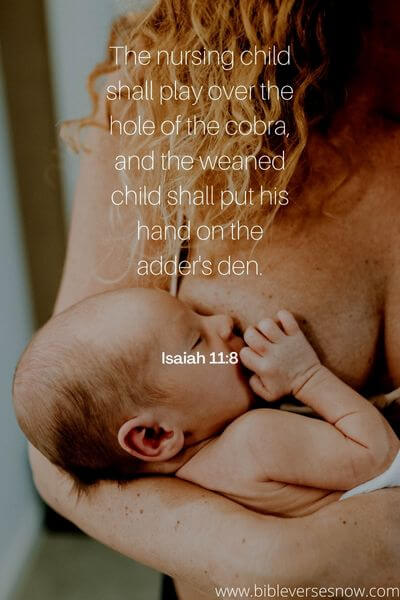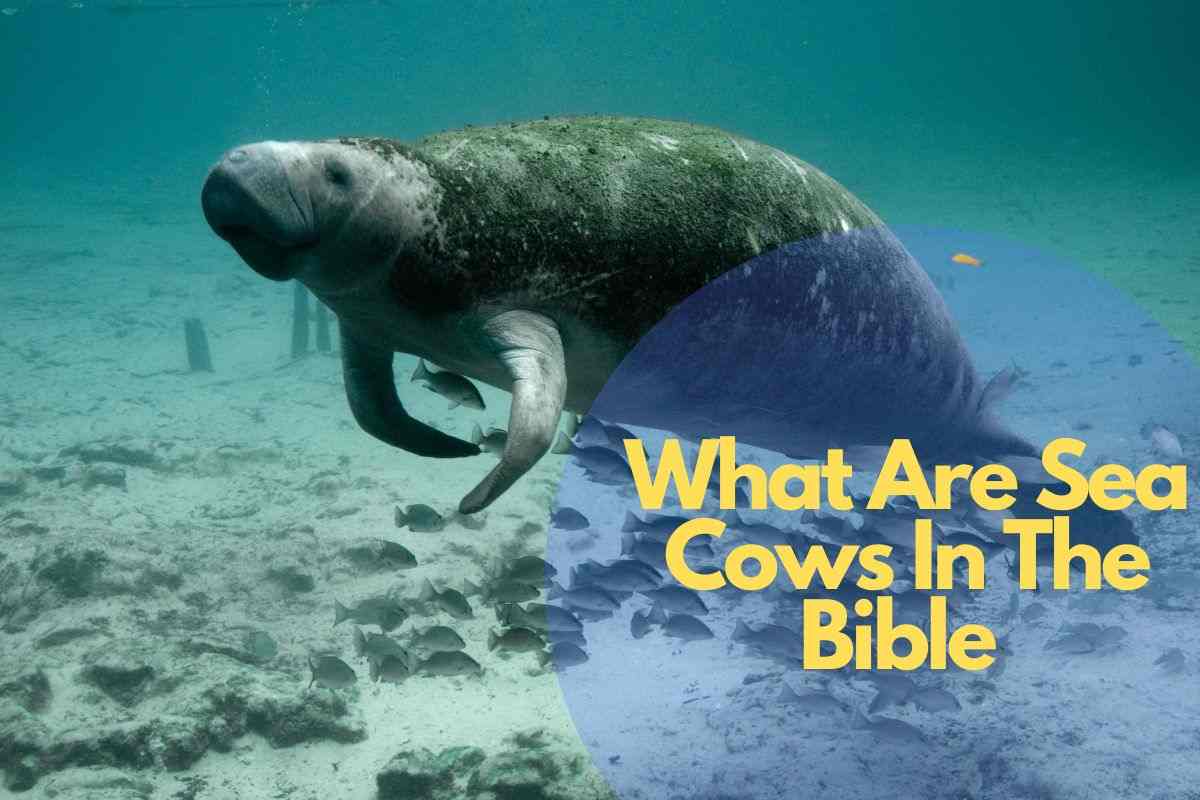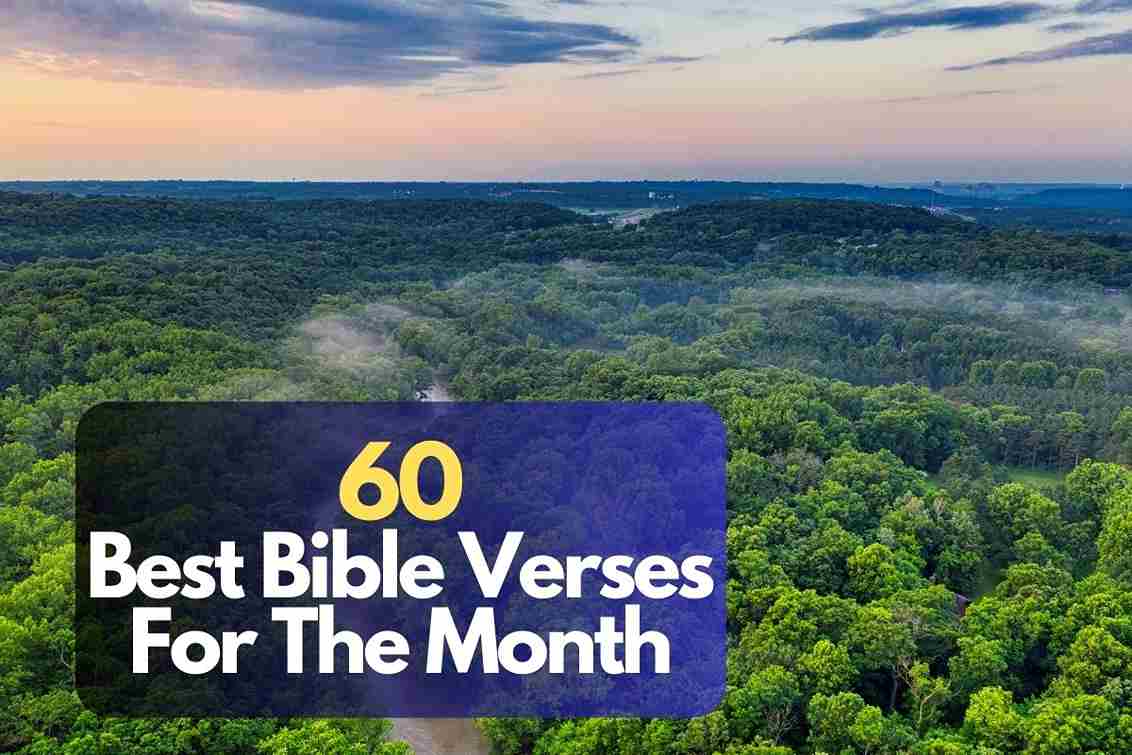Sea cows are large, herbivorous marine mammals that belong to the family Trichechidae. There are three species of sea cows: the manatee (Trichechus manatus), the Amazonian manatee (Trichechus inunguis), and the dugong (Dugong dugon).
They are known for their gentle nature and slow movements and are often found in warm, shallow waters. Sea cows play an essential role in their ecosystems by helping to maintain seagrass beds and other aquatic habitats.
Unfortunately, sea cows are also threatened by habitat loss, boat strikes, and other human activities. Conservation efforts are underway to protect these unique and fascinating animals.
What are Sea Cows in the Bible
1. Leviticus 11:18
The barn owl, the tawny owl, the carrion vulture,

2. Isaiah 51:8
For the moth will eat them up like a garment, and the worm will eat them like wool, but my righteousness will be forever, and my salvation to all generations.

3. Isaiah 34:14
And wild animals shall meet with hyenas; the wild goat shall cry to his fellow; indeed, there the night bird settles and finds for herself a resting place.

4. Isaiah 14:29
Rejoice not, O Philistia, all of you, that the rod that struck you is broken, for from the serpent’s root will come forth an adder, and its fruit will be a flying fiery serpent.

5. Isaiah 14:1-32
For the Lord will have compassion on Jacob and will again choose Israel, and will set them in their own land, and sojourners will join them and will attach themselves to the house of Jacob. And the peoples will take them and bring them to their place, and the house of Israel will possess them in the Lord’s land as male and female slaves.
They will take captive those who were their captors, and rule over those who oppressed them. When the Lord has given you rest from your pain and turmoil and the hard service with which you were made to serve, you will take up this taunt against the king of Babylon: “How the oppressor has ceased, the insolent fury ceased! The Lord has broken the staff of the wicked, the scepter of rulers, …

6. Isaiah 11:8
The nursing child shall play over the hole of the cobra, and the weaned child shall put his hand on the adder’s den.

7. Isaiah 11:6
The wolf shall dwell with the lamb, and the leopard shall lie down with the young goat, and the calf and the lion and the fattened calf together; and a little child shall lead them.

8. Isaiah 2:20
In that day mankind will cast away their idols of silver and their idols of gold, which they made for themselves to worship, to the moles and to the bats,

9. Song of Solomon 5:1
I came to my garden, my sister, my bride, I gathered my myrrh with my spice, I ate my honeycomb with my honey, I drank my wine with my milk. Eat, friends, drink, and be drunk with love!

10. Song of Solomon 4:11
Your lips drip nectar, my bride; honey and milk are under your tongue; the fragrance of your garments is like the fragrance of Lebanon.

What was a sea cow in the Bible?
11. Matthew 23:24
You blind guides, straining out a gnat and swallowing a camel!
12. Matthew 7:15
“Beware of false prophets, who come to you in sheep’s clothing but inwardly are ravenous wolves.
13. Matthew 3:4
Now John wore a garment of camel’s hair and a leather belt around his waist, and his food was locusts and wild honey.
14. Isaiah 59:5
They hatch adders’ eggs; they weave the spider’s web; he who eats their eggs dies, and from one that is crushed a viper is hatched.
15. Isaiah 11:6-9
The wolf shall dwell with the lamb, and the leopard shall lie down with the young goat, and the calf and the lion and the fattened calf together; and a little child shall lead them. The cow and the bear shall graze; their young shall lie down together; and the lion shall eat straw like the ox.
The nursing child shall play over the hole of the cobra, and the weaned child shall put his hand on the adder’s den. They shall not hurt or destroy in all my holy mountain; for the earth shall be full of the knowledge of the Lord as the waters cover the sea.
16. Proverbs 6:6
Go to the ant, O sluggard; consider her ways, and be wise.
17. Deuteronomy 14:5
The deer, the gazelle, the roebuck, the wild goat, the ibex, the antelope, and the mountain sheep.
18. Deuteronomy 14:1-29
“You are the sons of the Lord your God. You shall not cut yourselves or make any baldness on your foreheads for the dead. For you are a people holy to the Lord your God, and the Lord has chosen you to be a people for his treasured possession, out of all the peoples who are on the face of the earth. “You shall not eat any abomination. These are the animals you may eat: the ox, the sheep, the goat, the deer, the gazelle, the roebuck, the wild goat, the ibex, the antelope, and the mountain sheep. …
19. Numbers 4:6
Then they shall put on it a covering of goatskin and spread on top of that a cloth all of blue, and shall put in its poles.
20. Leviticus 11:22
Of them you may eat: the locust of any kind, the bald locust of any kind, the cricket of any kind, and the grasshopper of any kind.
What is a sea cow in Exodus
21. Exodus 25:5
Tanned rams’ skins, goatskins, acacia wood,
22. Exodus 13:5
And when the Lord brings you into the land of the Canaanites, the Hittites, the Amorites, the Hivites, and the Jebusites, which he swore to your fathers to give you, a land flowing with milk and honey, you shall keep this service in this month.
23. Exodus 3:8
And I have come down to deliver them out of the hand of the Egyptians and to bring them up out of that land to a good and broad land, a land flowing with milk and honey, to the place of the Canaanites, the Hittites, the Amorites, the Perizzites, the Hivites, and the Jebusites.
24. Ezekiel 16:10
I clothed you also with embroidered cloth and shod you with fine leather. I wrapped you in fine linen and covered you with silk.
26. Ezekiel 4:9
“And you, take wheat and barley, beans and lentils, millet and emmer, and put them into a single vessel and make your bread from them. During the number of days that you lie on your side, 390 days, you shall eat it.
27. Lamentations 4:3
Even jackals offer the breast; they nurse their young; but the daughter of my people has become cruel, like the ostriches in the wilderness.
28. Isaiah 65:25
The wolf and the lamb shall graze together; the lion shall eat straw like the ox, and dust shall be the serpent’s food. They shall not hurt or destroy in all my holy mountain,” says the Lord.
29. Isaiah 60:16
You shall suck the milk of nations; you shall nurse at the breast of kings; and you shall know that I, the Lord, am your Savior and your Redeemer, the Mighty One of Jacob.
30. Isaiah 55:1
“Come, everyone who thirsts, come to the waters; and he who has no money, come, buy and eat! Come, buy wine and milk without money and without price.
31. Isaiah 51:20
Your sons have fainted; they lie at the head of every street like an antelope in a net; they are full of the wrath of the Lord, the rebuke of your God.
Where did the Israelites get sea cows?
Uncertainty surrounds the exact origin of the Hebrews’ use of sea cow hides. God commanded Moses in Exodus 26 to cover the tent containing the Ark of the Covenant with the skins of sea cows related to dugongs.
Some scholars say the Israelites may have interacted with other cultures or traded for the hides.
According to another idea, the Israelites may have acquired the skins while living in Egypt, where sea cows could be found in large numbers in river deltas and estuaries.
Yet, obtaining the hides of sea cows would have been problematic and unlikely given the Israelites’ desert setting.
Sea cow vs manatee
Sea cows and manatees are both herbivorous marine mammals that are often grouped because of their similar appearance and lifestyle. However, there are some critical differences between the two species.
Sea cows, also known as dugongs, are found in warm coastal waters of the Indian and western Pacific Oceans, including areas such as the Red Sea, the Persian Gulf, and the Gulf of Aden.
They have a more streamlined body shape than manatees, with a pointed snout and a horizontally oriented tail. Sea cows have a more restricted diet than manatees, primarily feeding on seagrass.
Conversely, manatees are found in shallow, slow-moving rivers, estuaries, and coastal waters of the Atlantic Ocean, the Gulf of Mexico, and the Caribbean Sea. They have a more rounded body shape than sea cows, with a rounded snout and a vertically oriented tail.
Manatees have a more varied diet than sea cows, feeding on various aquatic plants, such as seagrass and freshwater vegetation.
What is a sea cow?
A sea cow is a large, herbivorous marine mammal that belongs to the family Dugongidae. It is also known as a dugong. Sea cows are closely related to manatees and appear similar but have some physical and behavioral differences.
Sea cows are herbivores and primarily feed on seagrass. They have large, harsh lips that they use to graze on seagrass growing on the seafloor. They are generally solitary animals but can sometimes be found in small groups.
What are the hides of sea cows?
The hides of sea cows, which include manatees and dugongs, are known for their durability and have been used for various purposes throughout history.
The hides are thick and challenging, which makes them resistant to tearing and puncturing, and they also have a natural oil content that helps to repel water.
Historically, one of the primary uses for sea cow hides is for making leather. The hides are treated with salt to preserve them and soaked in water to soften them before being worked into the leather.
The resulting leather is durable and water-resistant, making it ideal for various applications, including footwear, bags, and clothing.
The oil in the hides has been used as a fuel source, and the bones and teeth of sea cows have been used for tools and weapons. The meat of sea cows has also been consumed in some cultures, although this practice is now generally discouraged due to conservation concerns.
Sea cows in the Red Sea
Sea cows, or dugongs, are not typically found in the Red Sea. They are more commonly found in the shallow coastal waters of the Indian and western Pacific Oceans, including areas such as the Red Sea’s neighboring Gulf of Aden, the Arabian Sea, and the Persian Gulf.
While dugongs can appear in the Red Sea, it is rare. The Red Sea is known for its high salinity and warm waters, which may not be suitable for dugongs to thrive.
Additionally, the Red Sea’s lack of seagrass beds, a primary food source for dugongs, may make it less hospitable compared to other areas where they are more commonly found.
Why is the sea cow called a cow?
The sea cow is called a cow because it resembles terrestrial cows. Sea cows, also known as dugongs, are large, slow-moving marine mammals graze on seagrass, similar to cows that graze on the land.
They have a plump, rounded body shape and two front flippers similar in shape and function to a cow’s hooves.
Additionally, early European explorers and settlers in areas where dugongs were found often named them after familiar land animals, such as cows or pigs, to describe their appearance and behavior to others.
This naming convention has persisted and is now widely accepted as a common name for these marine mammals.






